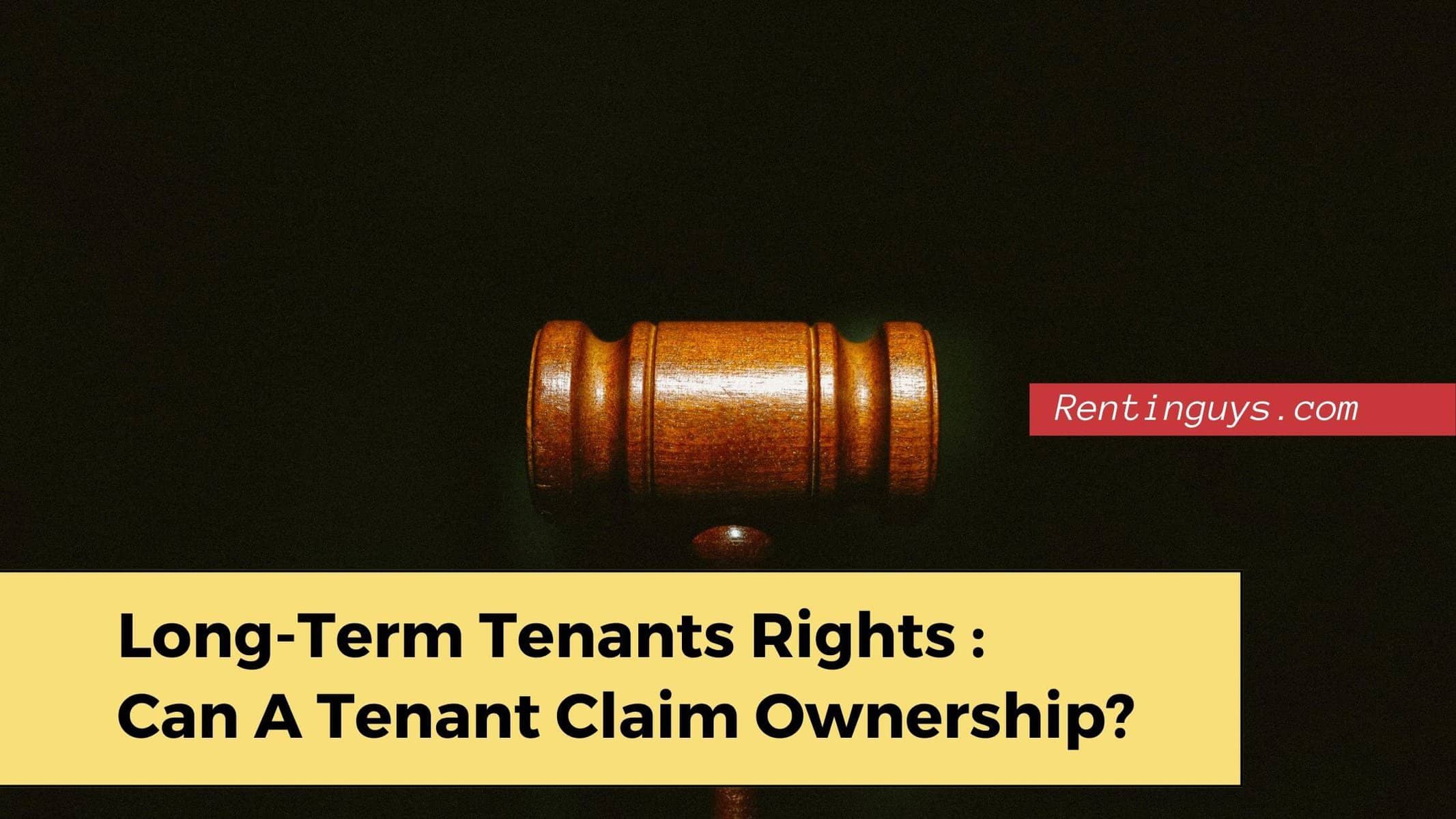Tenants can claim ownership of a property if they stay for over 10 years.
Long-term tenants have special rights.
The landlord cannot vacate long-term tenants.
These are some of the popular misconceptions often heard in the property market.
It is common knowledge that federal and state housing laws provide certain rights to tenants.
No matter whether you stay in a particular rental property for a year or ten, these are the only rights available to you. Long-term tenants get no special rights over the property.
Why do landlords prefer long-term tenants?
A huge majority of property owners prefer to earn passive income by renting out their properties.
Most landlords prefer long-term rentals as they provide stable cash flows and are a safe bet to protect the property against inflation.
There are many advantages of letting out a house for the long term, and that is the reason most landlords prefer long-term tenants. Some pros of long-term rentals are
Stability of cash flow:
The rent and the time period of the tenancy are fixed. You will be receiving rent throughout the tenure of the lease.
No threat of market fluctuations:
Since the amount of rent is fixed, market fluctuations are not a concern. You need not worry about the demand-supply scenario or increasing competition since the rent is fixed for a year, or whatever is the tenure of the lease.
Fewer restrictions
Most cities place strict restrictions on short-term rentals such as a cap on the number of days a property can be given short-term rentals, curfews, noise limits, etc. Renting out the property for the long term means fewer restrictions.
No seasonal fluctuations:
Having long-term tenants staying at your property means no worry about the peak and off seasons. The demand for short-term rentals varies depending on the seasons, whereas long-term rentals do not have such risk.
Value appreciation:
The value of a property located in a good neighborhood will steadily increase over time. Renting out to long-term tenants will ensure that you have regular cash flows throughout and earn a good return on investment.
Low tenant turnover:
Long-term tenancy means that the tenant is fixed for the entire tenancy period, whereas there are multiple guest turnovers in short-term rentals. A single tenant staying in the property means they take care of the property well and are more responsible.
Low costs:
When the house is vacant, the landlord loses the rental income. Moreover, he also has to incur additional expenses to advertise the property to find new tenants and the paperwork to finalize the tenants.
Frequent tenant turnovers mean frequent expenses. When a tenant stays for a longer duration, these expenses can be saved.
Low risk of damages:
A long-term tenant takes good care of the property, in comparison to short-term tenants who stay for a few days or weeks. Insurance companies consider property on short-term rentals riskier and charge higher premiums.
What is the longest tenancy agreement you can have?
The duration of the tenancy agreement can be as long as desired by the landlord and the tenant. Generally, most landlords prefer to have yearly agreements.
The length of the tenancy can be classified into 4 categories
- Term of years tenancy – The tenancy lasts for a fixed period, which is agreed upon in advance by the landlord and the tenant.
- Periodic Tenancy – The tenancy lasts until the landlord or tenant gives notice of termination. The notice must be given well in advance. For example, in most states, the tenant must give a 21-day advance notice and the landlord must give a written notice 42 days or 90 days in advance, depending on the circumstances.
- Tenancy at will – There is no ending period and the tenancy continues till the time both the landlord and tenant wish to continue.
- Tenancy at sufferance – Tenant continues to occupy the property even after the lease expires.
Do long-term tenants have special rights?
Long-term tenants do not have any special rights under the law. The tenant rights are the same for everyone whether you rent a property for one year or ten years.
Some key tenant rights you should know about are
- Right to freedom from discrimination
- Right to a habitable home
- Right of quiet enjoyment
- Right to get advance notice of eviction
- Right to a disabled-friendly accommodation
The tenant rights help to protect your interests as a tenant from any unlawful practices of the landlord and ensure that your rental home is safe and habitable.
How long can a tenant stay after the lease expires?
Theoretically, a tenant can stay for as long as the landlord allows them to stay even after the lease expires.
The lease document will clearly state for how long you can continue staying at the rental home after the lease expires.
If your landlord continues to accept the rent payments and allows you to stay after the expiry of the lease, then you will be in a holdover tenancy.
The landlords must provide advance notice to the tenants if they do not plan to renew the lease. The period of notice varies from state to state.
For example, In Chicago, a landlord must provide a 30-day advance notice to the tenant. If the landlord fails to do so, the tenant can stay for 60 days after the lease expires.
The terms and conditions of the previous lease are considered effective for these 60 days.
It is advisable to refer to the local housing laws to know how long you can stay after the lease expires.
Can a tenant claim ownership after a long-term stay?
A tenant cannot claim ownership of the property even after staying for 20 years or more if there is a lease agreement between the landlord and the tenant. A tenant is always a tenant until he buys the property from the landlord.
If you want to own the property through adverse possession,
- There should be no rental agreement with the landlord
- You must possess the property continuously for several years without any interruption from the owner,
- The adverse possession must be hostile, open, and exclusive,
- Pay all the taxes levied.
The actual time frame for claiming adverse possession changes from state to state. It varies from 7 to 20 years.
The federal and state housing laws provide certain rights to the tenants to protect them from the unlawful activities of the landlord.
Apart from these rights, long-term tenants do not have any special rights. They cannot claim ownership of the property just because they stayed at the property for 5 or 10 or 20 years.







